''Peer reproduction''?
Key signing parties between trust and subtle othering
Silke Meyer (Freie Universität Berlin)

"Peer reproduction?" Key signing parties between trust and
subtle othering by Silke Meyer is licensed under a Creative Commons
Attribution-Noncommercial-Share Alike 3.0 Germany License.
A short introduction to key signing parties
Key signing parties are a ritual belonging to encrypted electronic
communication. They take part during congresses or big meetings of the
free software community.
I will shortly summarize what happens at such a party:
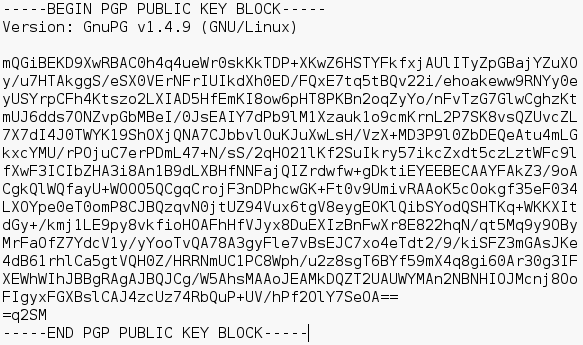
Figure 1: A gpg key in text form
People generate a pair of keys (a public and a private key). They
publish their public keys on the internet or send them to communication
partners via e-mail. The public key is used by others to encrypt an
e-mail to the owner of the key. Only this particular person should be
able to decrypt the message.
Key signing parties are arranged to assure that public keys really
belong to the person that allegedly published it. The authenticity of a
key is certified by the digital signatures of those who have checked the
“true” identity of the owner.
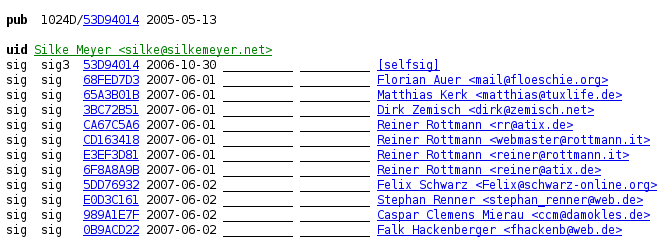
Figure 2: Signatures on a gpg key are publicly accessible on the
internet
The idea behind this is that not everyone is able to check every
identity because people live too far away from each other. But if one
can rely on signatures which others have given to a key, one can assume
that a key is authentic. This notion is called “web of trust”:
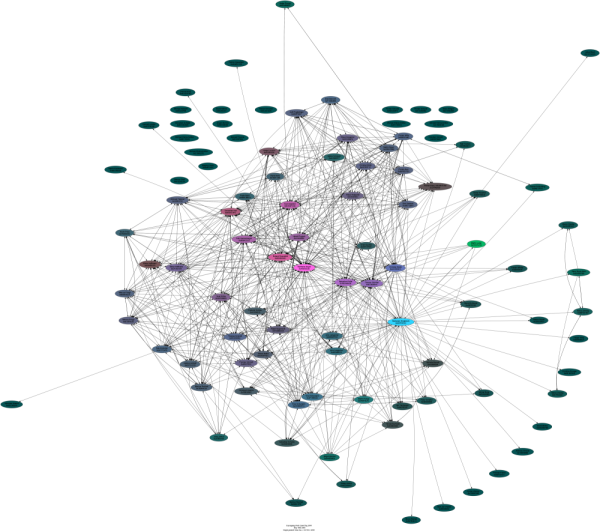
Figure 3: The "web of trust" between the participants after a key
signing party
(published on
http://wiki.linuxtag.org/w/Keysigning_2008 by the organizer)
A has signed keys with B and C, so B and C could “trust” each other's
keys, because there is a linkage, namely A's digital signature on both
their keys. Big key signing parties with many participants make this
''web of trust'' grow very fast. One could say that the ''web of trust''
is a network of individuals who want to be sure about the 'true
identity' of their communication partners.
Observations
It is important to me to draw your attention to the interaction between
participants during keysigning. I observed a few parties in Germany and
found that the bulk of communication is about basic differences between
the participants.
Here, I would like to discuss to which extent the ritual is influenced
by categories like nationality and what this means for a community that
wants to be international.
German as lingua franca at international events in Germany
During the first part of a keysigning party, the attendance list is checked:
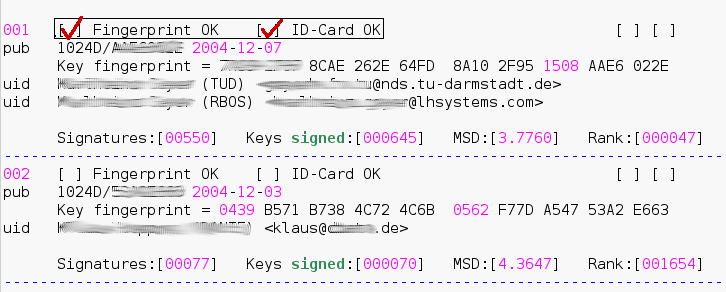
Figure 4: On the attendance list of a party there are checkboxes to
note whose key finger print and ID card has been checked.
Are all those present who applied for the event? Do they all confirm
that the finger prints of their keys are authentically reproduced on the
list?
At international key signing parties I observed several times that
during the welcome or the check of attendance single persons piped up
and said they did not understand German. They asked if it was possible
to continue in English or to translate. Language is linked to
provenance. By defining German as the lingua franca on international
community meetings in Germany, some people unintentionally make an issue
out of their different background by asking for translation. Generally,
it's no problem for anyone to switch to English, but evidently nobody
came to think of it before. This behaviour produces a rule in common
practive: participants speak German.
Passports: the artefact in the centre of attention
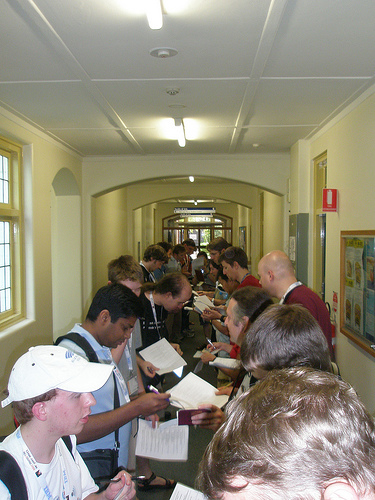
Figure 5: Control of passports during a key signing party.
(Source: http://www.flickr.com/photos/arctanx/2395905554/
by arctanx under a http://creativecommons.org/licenses/by-sa/2.0/deed.en)
The only certificate that proofs one's identity is issued by state
departments: In Germany this can be a passport or an identity card.
Remarkably no driving licences are accepted.
At key signing parties the passport becomes the center of attention.
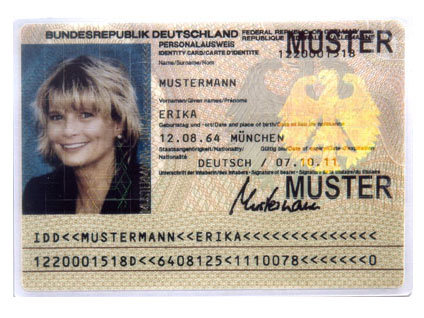
Figure 6: On the attendance list of a party there are checkboxes to
note whose key finger print and ID card has been checked.
(Source: http://commons.wikimedia.org/wiki/File:MustermannPA.jpg. This
image is in the public domain.)
A passport contains information that is picked up by the
participants to start brief, small talk-like conversations. Passports
thus offer the possibility to talk about where people come from, about
their appearance (photo), age, and gender.
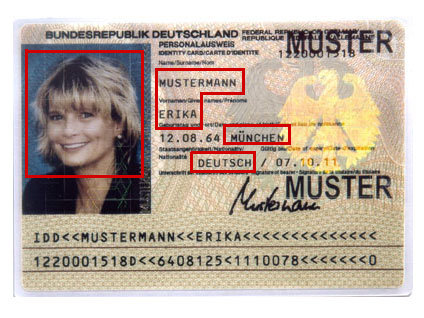
Figure 7: Topics for small talk.
This might explain why talking about otherness becomes such an integral part
of key signing.
Let me go into detail:
Dialect as deviance
On the one hand foreign languages were an
issue at the key signing parties but I also observed that dialects or
languages as Swiss German constantly were a topic of conversation. “Say
a sentence in Swiss German or Swabian to prove where you come
from.” Remarks like this are meant to be jokes. My point is to say
that also by jokes the construction of otherness (or worse, of inequality) is
perpetuated.
Names as carriers of exoticism
I frequently observed that special attention is paid to participants'
names. Questions like ''Where does that name come from?'', ''How do you
pronouce that?'' are very common. The
same people were asked again and again during a key signing party. Their
interaction partners
tried to pronounce their names and made comments like "oh, cool".
Surely this is meant to be friendly. One wants to demonstrate to be interested in the partner. But I
argue that this has an effect: It gives an exotic distinction to people
who bear uncommon names. There is no personal exchange with anyone during a
signing party.
The interaction is restricted to noticing exotic names and maybe
finding them "cool". At the same time, making someone appear exotic,
confirms a norm: the non-exotic, commonly known names correspond to the norm.
(This makes me think of situations in which people wearing a veil are
told that their German is good...)
Authenticity and validity of passports
What is recognized as an identification paper? In Germany official
identification papers are passports and ID cards. Elsewhere, this is
different. Not only did I observe that participants utter doubts in the
authenticity of non-German identification papers, often enounced as jokes (e.g.
"self-made in colour printer"). But also I saw that in some
cases, people refused to sign a key of someone who brought, for example, a
Swiss driving
licence which for him or her is a valid identification paper.
Individuals can decide to produce others as untrustworthy persons
or not.
One could here talk of a lack of cross-cultural competence. The norm is
given by the majority of the attendants. It seems difficult to put
oneself in the position of someone who knows different norms and to
accept the papers they bring as equivalents of the own.
What often happens is that participants have expired passports which
confronts the crowd with a problem: Shall they obey to the strict rules of key
signing and refuse their trust or shall they turn a blind eye to the
rules? In my opinion, such moments of irritation show paradoxes in the
ritual. They raise the question what is a "trustworthy" communication
partner? An honest and law-abiding citizen who at once exchanges expired
papers?
Gender
We have heard a lot about the community being male-dominated.
Not surprisingly, there are very few women present at key signing parties as
in most parts of the community.
At this ritual, I had the general impression that where people come from
is made much more important than their gender. But I observed situations
in which gender is subtly meaningful:
One example was during the check of attendance: Everyone is taking notes
on one's list, to fill in who is attending the event. The heads are
turned down towards the lists while the names are called. The moment
a female name is called, all the heads turn up to look at her.
A second example were comments during the check of identity. Someone
calls out loudly "Ah, you always stick longer to talk to women!"
Knowledge is a prerequisite
At big key signing parties, all
knowledge about key signing is required. No explanations are provided
in the course of it. There ist no room for questions. The attendants do
not challenge the abstract idea of building up a "web of trust", let
alone ask how e-mail encryption or key generation work.
At the big events, so-called newbies stood in the way. They did not
understand which principle the crowd followed lining up in a queue.
The one small party I saw, with about 20 participants, was an exception.
Here, the organizers provided quite a lot of information on how the
ritual is carried out. They even reserved a whole hour before the actual
meeting for answering questions. However, I did not see many
persons who asked for an introduction.
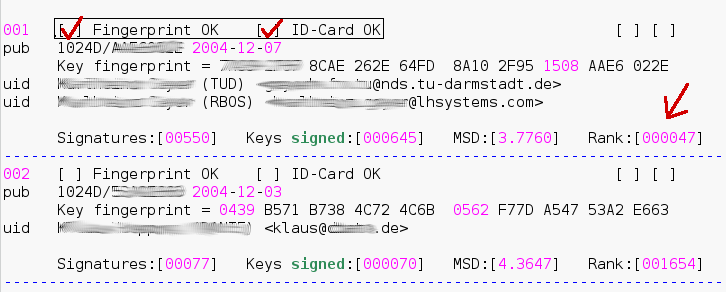
Figure 8: Here, the participants' place on the ranking list of the best
interlinked keys are mentioned on the attendance list.
Key signing thus mainly is a ritual for experts.
There is even a ranking
list of experts on the internet: the one thousand keys that are best
interlinked with other keys. During the parties some participants kept
joking about their high positions in concurrence to others', while beginners
did not know what they were on about.
Summary: Key signing as a practice of othering
I see a fundamental paradox in the ritual of key signing:
One the one hand, the community criticizes the establishment of a
surveillance society. Amongst others, encrypted communication is
important to them to protect their privacy from the authorities. One
might say that key signing is a public demonstration of people who want
to stress their consciousness of data being "sensitive". This raises the
question why the "web of trust" is published online so that whole social
networks are easy to reconstruct by the signatures.
On the other hand, the state is
handing out the only accepted proof of identity, namely passports.
I assume that the relevance of papers in the ritual is one reason for
nationality, language and provenance being made important apart from the
fact that we all probably have these categories quite well incorporated.
What other ways we can think of to build up trust...?
We have seen that the discursive production of otherness is a
constitutive part of key signing.
I would say that two sorts of "others" are produced in the
ritual:
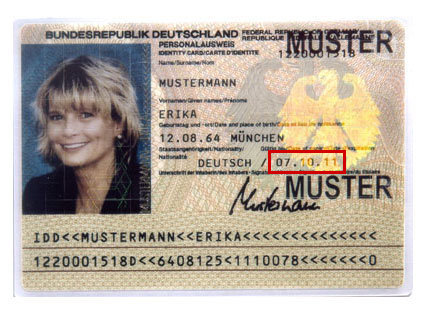
Figure 9: No trust without valid identification papers
First, there are persons who are not trustworthy because they do
not have valid or accepted papers, but who take part in the party. Their
disobedience to the rules of key signing makes them suspicious. In this
logic, only citizens are trustworthy. The identification with one or
more nationalities are crucial to be taken as an equivalent partner.
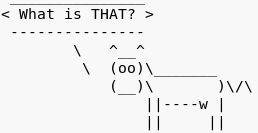
Figure 10: Otherness is mentioned over and over again.
Second, there are "others" whom can be trusted by signing their
keys (because they do have valid papers),
but whose "otherness" has to be mentioned over and over again. They
deviate from the average
participant because of their background or body, those who have uncommon
names, or speak in a different way. Every mentioning updates the
inscription as "other" and helps establishing the norm.
Thereby, nationality becomes one fundamental category that structures
the practice of key signing.
Quite a few of my observations allow conclusions as to a lack of
cross-cultural competence.
It remains to consider the question what the norm actually is. The huge
majority incorporating the norm of key signing attendants was in these
cases of German nationality, German speaking, and of German offspring,
male and specialists in key signing rather than newbies.
Of course, my image is not that homogenous. I have to mention other
topics of small talk like the community projects the participants are
active in. The list of attendants can give clues as to these projects
(e-mail addresses). Jokes about new ID cards containing biometric data
are quite common, too. This can be understood as political criticism in
a context where people nevertheless rely on those ID cards as
identification papers. And I have to mention little conversations
alongside the events where questions concerning the ritual were
answered "inofficially".
What's the point of my talk?
Such processes of othering I described have effects on the community.
Drawing on basic distinctions between people makes it easy to open up
classifications based upon characteristics. My observations make me pay
special attention because the same processes basically underly
discrimination.
In this context, it is very hard to distinguish between friendly jokes
towards the guests of the event and the subtle drawing on discriminating
patterns that are deeply embedded in mainstream society.
Such cognitive patterns are long-lasting, often structured in a
dichotomous way and they are often evoked unconsciously. They are based
upon the premise that people and societies
differ from each other in significant ways. This can be the base for
racism, sexism, classism, homophobia and all sorts of discrimination.
The outstanding issues are
- Which social power relations are reproduced in practices
of the FLOSS community?
- How is this related to the community's claims to work
in a different way?
- What can be done to raise people's awareness of
potentially discriminating behaviour especially when
they just wanted to be friendly or funny without
accusing them of discrimination?











